The Best Crop To Grow On 5 Acres (For 5 Regions)
The continental United States has five main climate regions: humid subtropical, Mediterranean, marine west coast, humid continental, and arid or semi-arid. If you only have 5 acres of land, you may be searching for the best crops that are both profitable and easy to grow for each climate type. With many crops to choose from, we've narrowed down your options in this article and researched the most profitable and easiest crops to grow.
The northeast region's humid continental climate is good for planting apples, while the subtropical climate of the southeast is best for peanuts. The midwest region's humid continental climate is best for growing corn, while the southwest's desert climate is best for cotton. The west coast' Mediterranean climate grows almonds best.
In addition to growing crops, there are other opportunities to generate income on your 5-acre farm based on your climate region. You may consider beekeeping, greenhouse farming, or raising livestock. As you read this article, you'll get to know more profitable farming ideas for your 5-acre land to give you more options and help you earn more profit.
Summary
- The Northeast region has a humid continental climate good for growing apples, berries, sweet corn, and potatoes. The Southeast region has a subtropical climate that is best for planting cotton, peanuts, tobacco, and soybeans.
- The Midwest region has a humid continental climate suitable for corn and oats. The Southwest region has a desert climate, perfect for growing citrus fruits and cotton, while the West Coast region's Mediterranean climate is best for growing grapes and almonds.
- You may also incorporate livestock into your 5-acre farm to provide a great source of income and complement your crop production. You can try dairy farming, or raising animals such as beef cattle, sheep, goats, or chickens.
- Greenhouse farming and beekeeping are other options to generate income from your 5-acre land. Aside from being profitable, these types of farming can be done in different climate regions in the U.S.

On this page:
The Best Crop to Grow on 5 Acres Per Climate Region
Below is a table summarizing the most profitable crop in each climate region in the United States, along with their estimated net income per acre:
| Climate Region | Most Profitable Crop | Estimated Net Income per Acre |
|---|---|---|
| Northeast | Apples | $1,182 |
| Southeast | Peanuts | $1,166 |
| Midwest | Corn | $364 |
| Southwest | Cotton | $343 |
| West Coast | Almonds | $5,000 |
Apples are the most valuable crop in the Northeast region
Apples are considered the most economically important specialty crop in the Northeast, with production valued at just over $400 million. The current market demand for apples is high, and the selling price can range from $0.50 to $2 per pound depending on the variety and quality.
In an acre, there can be 36 apple trees in total. If each tree has an estimated profit of around $400, it means you can earn as much as $14,400 per acre of apple trees.
The profitability of apples, however, can vary due to a variety of factors, such as the specific variety of apples grown, the size of the orchard, and the local market conditions.
Peanuts remain the most profitable crop in the Southeast region
Peanuts are cash crops native to South America but have been adapted to grow in various other countries. They typically prefer humid, subtropical climates with extended periods of heat.
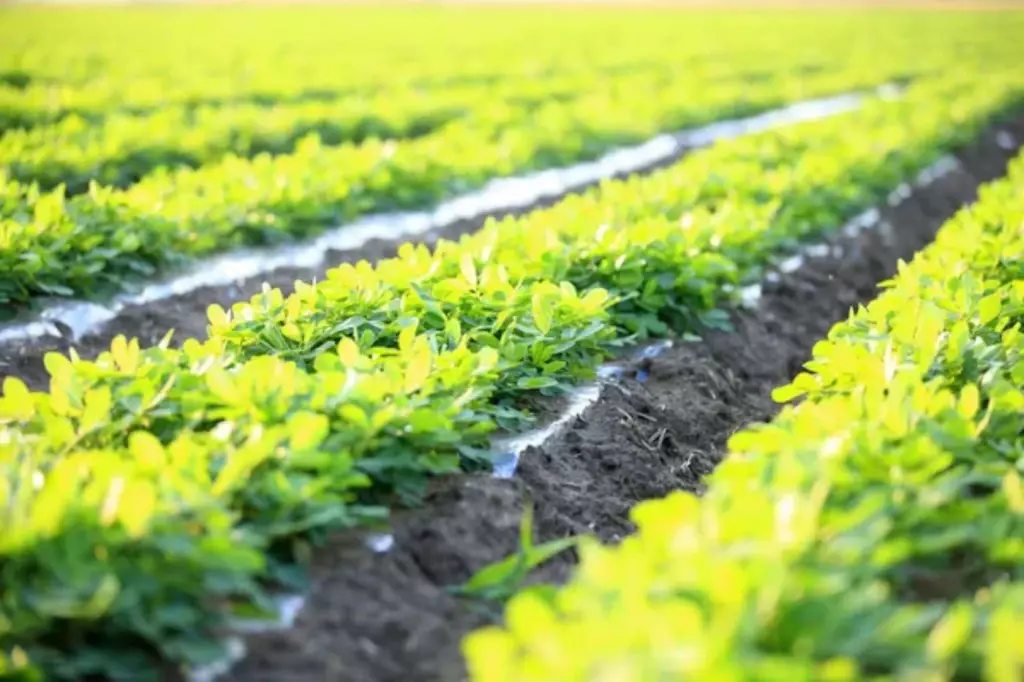
During the years 2021–2022, peanut production got the third-highest peanut crop on record, and supply was expected to exceed consumption by 140,000 tons. The quality of the peanut crop produced during this period was also high.
However, prices for cotton, the second most profitable crop in the Southeast region after peanuts, hit record highs in early 2022, leading farmers to shift crops away from peanuts and into cotton. Nevertheless, the demand for edible peanuts remains high with recent estimates of consumption at 7.9 lb per capita.
Corn is the most versatile and in-demand crop in the Midwest region
Corn is popular due to its versatility and high demand. It also has a high yield, usually producing 150-200 bushels per acre. Each bushel of corn sells for about $3.50 to $4.50 each.
If you have a corn farm that yields 200 bushels per acre, and each bushel sells for an average price of $3.50, the total revenue per acre would be $700. Now let's consider the expenses associated with growing corn.
The average cost of production for corn in the Midwest is $336 per acre. This includes expenses such as seed, fertilizer, pesticides, and labor. Subtracting the cost of production from the total revenue, we get a net income of $364 per acre for corn.
Cotton is the most lucrative crop in the Southwest region
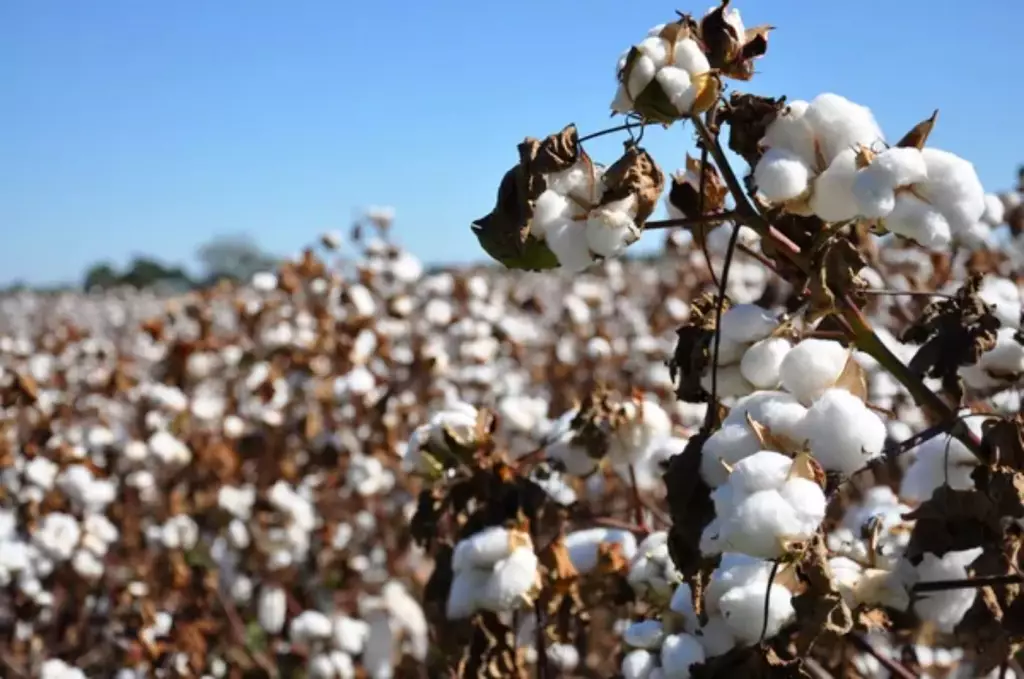
What makes cotton a profitable crop is its ability to resist pests and diseases, making it easier for small farmers to manage. Aside from that, it is a drought-tolerant crop, meaning that it can still yield good profits even during dry seasons.
Statistics show that the total cotton yield per harvested acre in the U.S. in 2022 amounted to approximately 947 pounds. If we assume that a cotton farm yields 1,000 pounds of cotton per acre, with each pound selling for an average price of $0.70, the total revenue per acre would be $700.
Now let's consider the expenses associated with growing cotton. The average cost of production for cotton is $357 per acre. This includes expenses such as seed, fertilizer, pesticides, and labor. If we subtract the cost of production from the total revenue, we get a net income of $343 per acre for cotton.
Almonds are the easiest crop to grow in the West Coast region
Almonds can start producing fruit within 3–5 years, making them fast-growers, plus they are relatively easy to maintain.
These crops also have a high yield, high market demand, and a good selling price of around $5–$6 per pound. If an almond orchard yields 2,000 pounds of almonds per acre, and each pound sells for an average price of $5, the total revenue per acre would be $10,000.
The average cost of production for almonds is $2.50 to $3.50 per pound, which can total a production cost of $5,000 for the total yield of 2,000 pounds of almonds per acre. Subtracting the cost of production from the total revenue, we get a net income of $5,000 per acre for almonds.
List of Profitable Crop Choices for Each Climate Region in the U.S.
The continental United States has five main climate types: for five different regions: humid subtropical, Mediterranean, marine west coast, humid continental, and arid/semi-arid. Each region has its own unique weather patterns and growing conditions, which will affect the crops that are best suited for your farm.
Some crops that thrive in the hot, dry climate of the Southwest may not do well in the cool, wet climate of the Pacific Northwest. This is why considering your location and climate in choosing crops for your farm will affect the potential to bring in a good profit.
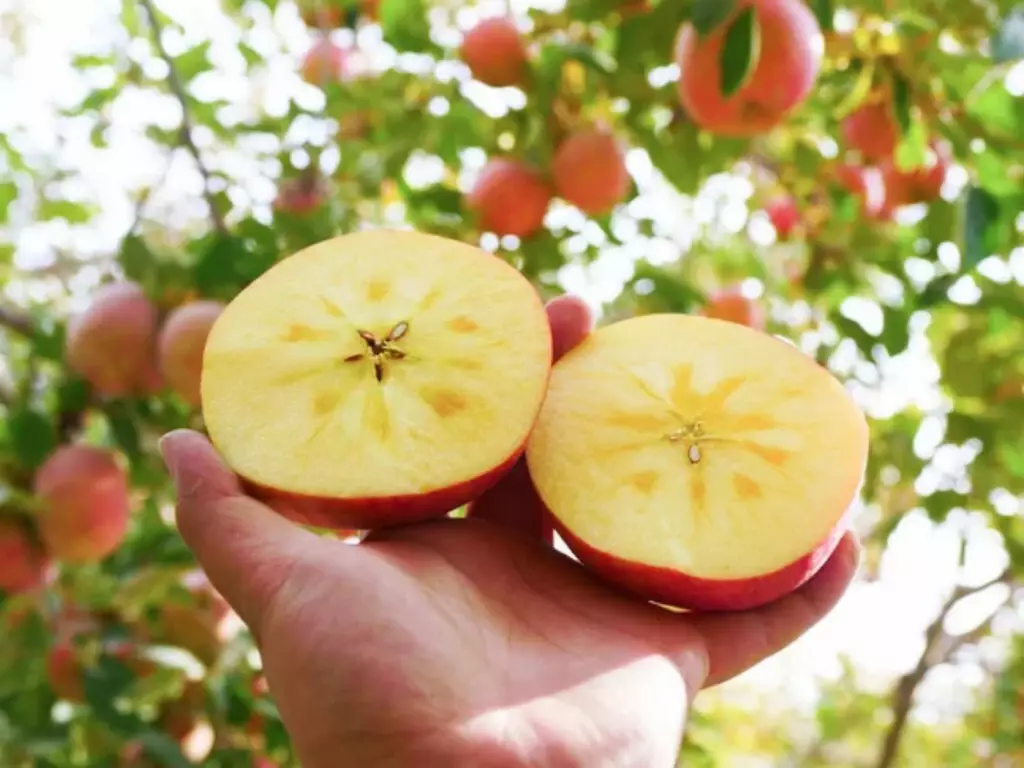
Now, if you only have 5 acres of land, you may see this as an excellent opportunity to grow profitable crops that are in high demand. The key to success is to choose crops that are easy to grow and have a high yield.
Here are some profitable crop choices that you can consider for your 5-acre farm, based on the five main climates in the continental U.S.
| Region | Climate | Profitable Crops |
|---|---|---|
| Northeast | Humid Continental | Apples, Berries, Sweet corn, Potatoes |
| Southeast | Subtropical | Cotton, Peanuts, Tobacco, Soybeans |
| Midwest | Humid Continental | Corn, Soybeans, Wheat, Oats |
| Southwest | Desert | Citrus fruits, Cotton, Pecans, Alfalfa |
| West Coast | Mediterranean | Grapes, Almonds, Avocados, Strawberries |
The Northeast region has a humid continental climate, with long, cold winters and short, warm summers, while the Southeast region has a subtropical climate, with hot summers and mild winters.
The Midwest region has a humid continental climate, with hot summers and cold winters. The Southwest region, on the other hand, has a desert climate, with hot summers and mild winters.

Lastly, the West Coast region has a Mediterranean climate, with mild, wet winters and hot, dry summers. Here, you can grow herbs, such as basil, and cash crops like garlic since both have a high yield, high demand in the market and are easy to grow. You may also want to consider specialty crops such as ginseng and lavender because they have a high value per pound.
Exploring Other Income Opportunities for 5 Acres of Land
In addition to growing crops, there are other opportunities to generate income on your 5-acre farm. Here are some ideas to consider:
Incorporate livestock farming into your 5-acre land
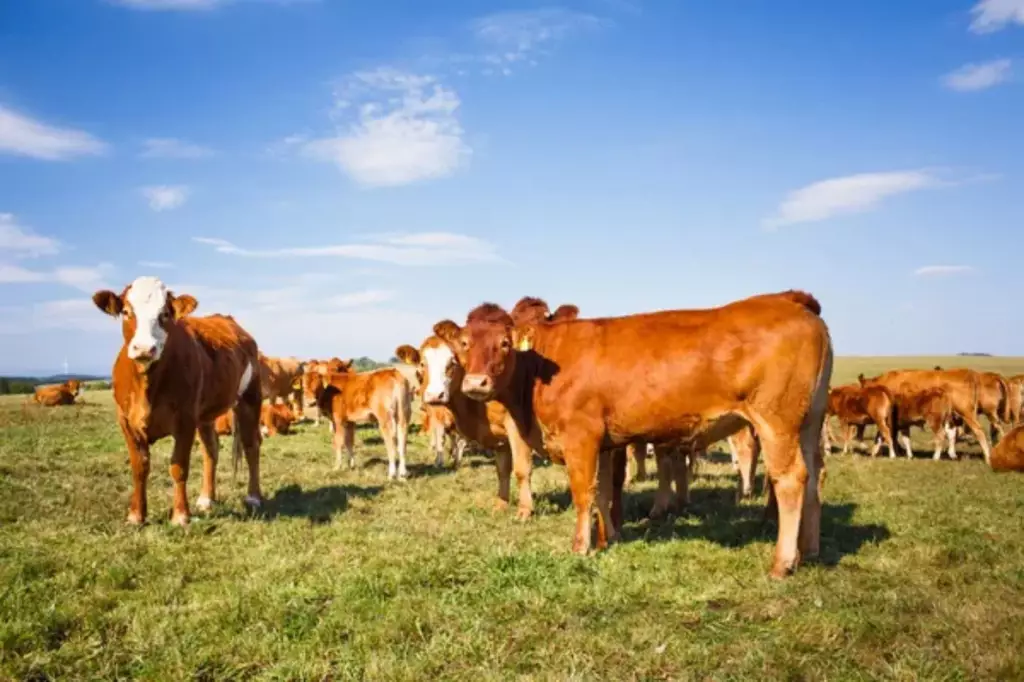
Incorporating livestock into your 5-acre farm can provide a great source of income and complement your crop production. Here are some of the most profitable animals for small farms in the continental U.S., and how they can fit into your farm plan:
Try dairy farming in the Northeast region
Dairy cows can produce milk for sale, as well as calves for beef production. In general, a cow-calf operation can generate a profit of $200 to $400 per cow per year.
You may want to try raising beef cattle for profit, and although it will require slightly more land than chickens, they require little input. You may allot two acres for a pair of cows or one acre for a single grazing cow.
Raising goats for meat can be a profitable option in the Southeast region
Goats are hardy and adaptable animals that can thrive on a variety of vegetation, making them well-suited to the region's warm, humid climate. You may want to raise Nigerian dwarf goats which milk is priced at $12 per gallon and meat is priced at $13 to $18 per pound.
The Midwest region is good for raising beef cattle
Raising beef cattle can be a profitable option, particularly for grass-fed and organic operations. The average net return per cow for beef farming in the Midwest is around $200 to $300 per year.
The arid climate in the Southwest region is good for raising sheep
A sheep is a great option for farmers who want to produce wool or meat. They require minimal space and can graze on low-quality pasture.
You can sell their wool for a profit or use it to make clothing. You can also sell the meat for a profit or use it to feed your family.
Raising sheep in the Southwest regions can be a profitable option, as these animals are well-suited to the region's arid climate. A sheep can yield a net profit of $50 to $80 per head.
Raising pastured poultry can be a profitable option in the West Coast regions
Raising pastured poultry can be profitable as there is high demand for organic, free-range chicken and eggs. Chickens are one of the easiest and most profitable animals to raise on a small farm.
They require minimal space and can provide a steady supply of eggs and meat. You can sell the eggs for a profit or use them to feed your family. Chickens can also help with pest control by eating insects and weeds.
You can yield a net profit of $2 to $6 per bird for pasture-raised poultry.
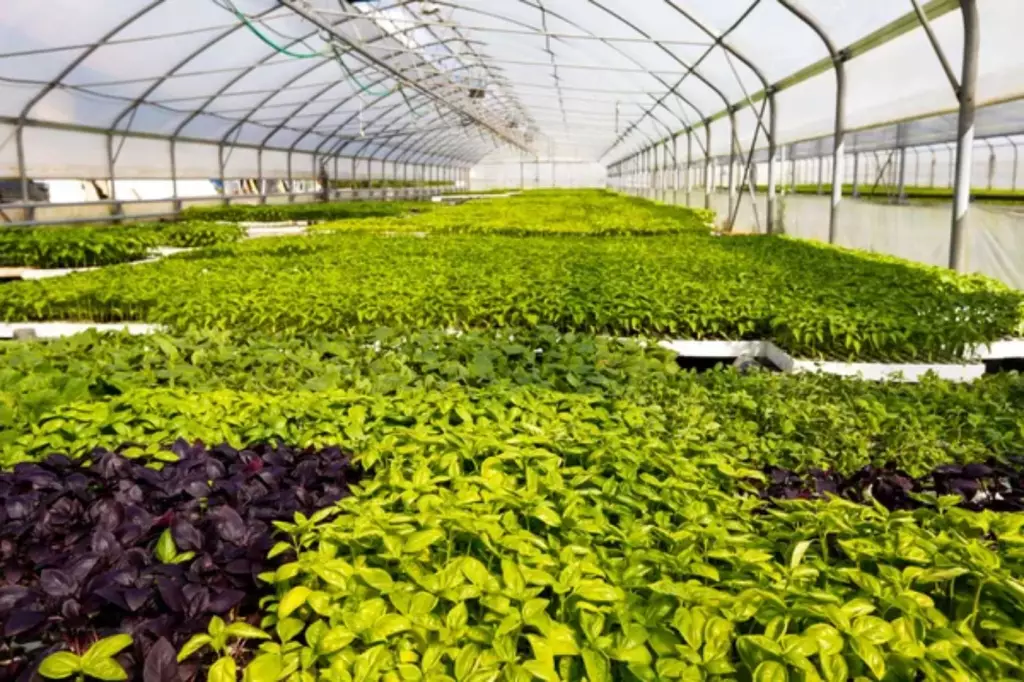
Integrate greenhouse farming in your 5-acre land
Greenhouse farming can be used to extend the growing season for high-value crops and grow crops that are not native to your area. You can also sell seedlings and plants to other farmers or individuals.
You may be able to extend the growing season of the most profitable crops such as tomatoes, peppers, cucumbers, herbs, lettuce, strawberries, microgreens, and specialty crops such as cactus and other succulents, and cannabis.
A well-managed greenhouse can yield up to $50,000 in gross income per year. This can quickly escalate to more than $100,000 per year if you have 2 or 3 greenhouse setups in your 5-acre land.
Set up a bee apiary on your 5-acre land
If you don't want to plant crops or raise livestock, you could always opt for a more interesting and profitable type of farming such as beekeeping.
Beekeeping can be a profitable source of income for small-scale farmers in all types of climate regions in the US, as bees can produce honey, beeswax, and other products that are in high demand. A well-managed beehive can produce up to 100 pounds of honey per year, which can be sold for $5 to $10 per pound.
In an acre of land,you can have at least 2 beehive setups. This means in 5 acres, you can have 10 beehives. If one beehive produces 100 pounds of honey each year, and each pound sells for $10, you can have an estimated revenue of $10,000 annually from beekeeping.



